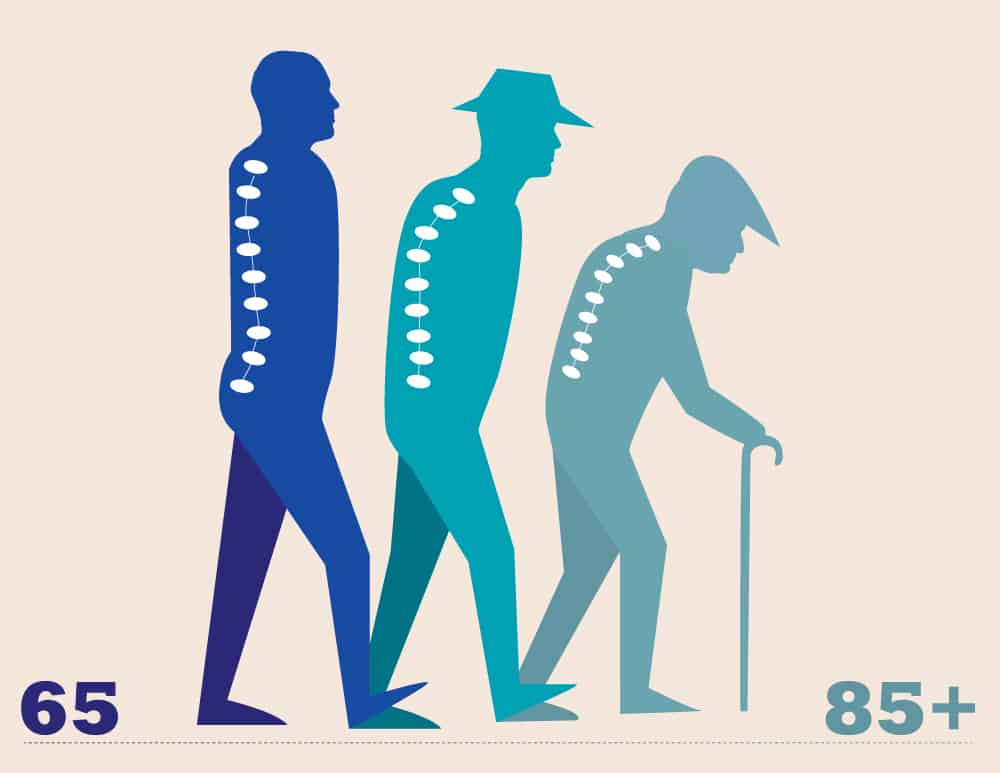Smart ageing represents one of the fastest growing industries and Ireland is well positioned to take the lead, writes Susan Davis.
A new global ‘longevity’ or ‘silver’ economy is emerging, arising from public and consumer expenditure relating to population ageing and the specific needs of older adults. It will be fuelled by the relatively high net wealth and spending power of the older consumer.
Merrill Lynch estimates that the smart ageing economy is worth $7tn today, growing to $14trn by 2020, and according to Oxford Economics, it is expected to account for over 50% of US and Japanese GDP by 2030. The 55+s in the EU and the US control 75% and 80% of the country’s wealth respectively, and account for over 55% of all household expenditure.
While ageing populations pose significant challenges to the healthcare and pensions systems of all countries, these developments are giving rise to global innovation and new markets. Companies and organisations have emerged in pharmaceuticals, medical devices, robotics, sensor systems, e- and m-health as well as new strategies for health systems and social supports. It is sparking new trends and business models, new products, services and new investments.
In the US, Calico, the Google/Arthur Levinson organisation, is focusing on basic research aimed at picking apart the biological mechanisms behind ageing and devising interventions to slow ageing and counteract age-related diseases. Tech leaders from eBay, Facebook and Netscape are contributing billions globally to transform biomedical research to enable people to live longer using big data, software, chips and algorithms to regenerate and reprogramme limbs, cells, organs and DNA.
SMART AGEING CLUSTERS
The European Commission has multiple smart ageing platforms focusing on technology, regulatory issues and potential future markets. The Dutch have developed smart ageing clusters; Silver Valley outside Paris has attracted over 80 companies and generated more than 1,000 jobs; Innovate UK created ALIP (Assisted Living Innovation Platform). Japan has long been at the forefront, led by the ‘Father of Smart Ageing’, Professor Hiro Murata, and Japan’s Smart Ageing International Research Centre.
Yet, no one has developed a country-wide smart ageing ecosystem. Ireland is ‘small enough and large enough’ to do so. With the right political and industry leadership, Ireland is talented enough to create a cluster of networked academic institutions, companies and investment firms and provide them with tailored supports and routes to the global markets. It is small enough to forge those collaborations and big enough to have attracted most of the world’s largest companies.
AGE-FRIENDLY INNOVATIONS
The opportunities are vast, ranging from creating new devices and products to the prevention of chronic diseases through changes in lifestyles, broadening and adapting ageing in place products and services, extending and tailoring education and training, developing new functional foods aimed at preventing age related diseases, as well as adapting age-friendly cities and communities.
The new generation of older adults are very different from their predecessors and any effective targeting of the older consumer market will require deep insights and understanding of ever-changing needs, expectations, choices and lifestyles.
Ireland is talented enough to create a cluster of networked academic institutions and provide them with tailored supports and routes to the global markets
GROUP SEGMENTATION
It will require smart segmentation by age, geography, educational levels, culture, income levels and much more.
It effectively includes three generations or groups not always determined by age:
- Active: The ‘younger’ old, recently retired typically 65-75, healthy, active, often still working by choice or for reasons of financial pressure.
- Fragile: The ‘middle aged’ old, typically 75-85, often still very healthy but increasingly experiencing health problems and mobility and sensory impairments.
- Frail: The ‘older’ old, typically those 85+ many of whom experience increasing frailty and dependency in the period before their death.
Addressing the big challenges will require disruptive innovations as well as incremental change if we are to succeed in addressing the needs of the increasingly ageing population.
Big solutions will often be beyond the reach of any one company or government agency and will require collaboration between all the key stakeholders – researchers, inventors, entrepreneurs, companies (large and small), investors, older consumers and government, working across different sectors and disciplines in a supportive ecosystem which enables them develop, test and trial new solutions.
IMPLEMENTATION CHANGE
The 2013 Global Irish Forum recommended that Ireland become a world leader for smart ageing innovation. Subsequently, as part of the Action Plan for Jobs, smart ageing research identified over 1,150 initiatives in Ireland across Government departments and agencies, higher education institutes, enterprise and NGOs.
In May, the Taoiseach issued the report showing how Ireland can use its strengths in key areas to take advantage of the fast-growing global market for products and services for older people, creating jobs and economic opportunities for Ireland as well as helping to improve the lives and living conditions of older people. In addition, a Government implementation committee involving key departments, the HSE, the IDA, Enterprise Ireland and Science Foundation Ireland, has engaged determined core areas of strength and will oversee an implementation plan.
A HUB OF INNOVATION
A new platform, the Irish Smart Ageing Exchange (ISAX), has emerged from the Global Irish Forum with the purpose of accelerating and commercialising innovations by connecting industry, research and academic institutions, entrepreneurs and government at all levels, within Ireland and beyond.
ISAX will be a dedicated hub focused exclusively on smart ageing in its broadest sense – across the key sectors which show most promise and which play to Ireland’s competitive advantages.
It will work across the stove-pipes, coordinating activities and support programmes, hot-housing new ideas, seizing new opportunities. It will plug into international developments and act as a ‘one-stop shop’ for companies seeking to keep abreast of innovations, policy, regulations and market intelligence in this space.
AN ENABLING ENVIRONMENT
ISAX will also provide an enabling environment to grow the ecosystem through dedicated smart ageing incubators, accelerator programmes and test beds. Under discussion is a global Smart Ageing Design Centre and the possibility of fostering the development of post-graduate programmes in industrial and environmental gerontology to grow the pipeline of scientifically significant research and IP in this sector.
The work is only beginning, but the momentum is quickly gaining speed. Smart-ageing represents one of the fastest growing industries in the world, and with it, the jobs and investment opportunities it has the potential to create cannot be underestimated. Ireland, with strong support from government and industry, is well positioned to take the lead.
About the author
Su san Davis is chairman of Susan Davis International (SDI), a global strategic communications consulting firm headquartered in Washington, DC with 74 agency partners worldwide.
san Davis is chairman of Susan Davis International (SDI), a global strategic communications consulting firm headquartered in Washington, DC with 74 agency partners worldwide.
For more than 30 years the company has been helping clients solve problems, solidify reputations, create new programmes, deal with crisis, communicate with key audiences and achieve outstanding results, no matter how ambitious their goals.






